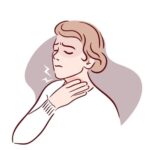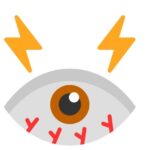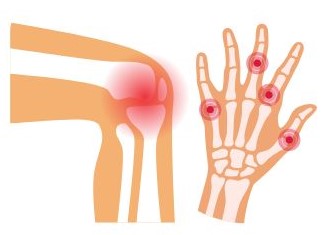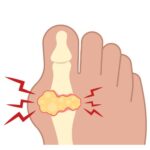he nose plays a crucial role in our respiratory system, as well as in our sense of smell. Various conditions can affect nasal health, leading to discomfort, infections, or complications. This article explores common nose conditions, their symptoms, causes, diagnosis, treatment options, and preventive measures.
1. Rhinitis
Overview:
Rhinitis is inflammation of the nasal lining, often resulting in symptoms such as a runny or stuffy nose.
Types:
- Allergic Rhinitis: Triggered by allergens like pollen, dust, or pet dander.
- Non-Allergic Rhinitis: Caused by irritants such as smoke, strong odors, or weather changes.
Symptoms:
- Sneezing
- Nasal congestion
- Runny nose (rhinorrhea)
- Itchy eyes and nose (more common in allergic rhinitis)
Causes:
- Allergens (in allergic rhinitis)
- Environmental factors (in non-allergic rhinitis)
- Viral infections (e.g., colds)
Diagnosis:
A healthcare provider will assess symptoms and may perform allergy tests or nasal endoscopy.
Treatment:
- Allergic Rhinitis: Antihistamines, nasal corticosteroids, and avoiding triggers.
- Non-Allergic Rhinitis: Saline nasal sprays, decongestants, and lifestyle modifications.
Prevention:
- Minimizing exposure to allergens or irritants.
- Maintaining a clean environment.
2. Sinusitis (Sinus Infection)
Overview:
Sinusitis is an inflammation of the sinuses, often following a viral infection like a cold.
Types:
- Acute Sinusitis: Lasts less than four weeks.
- Chronic Sinusitis: Symptoms persist for more than 12 weeks.
Symptoms:
- Nasal congestion
- Facial pain or pressure
- Thick nasal discharge (yellow or green)
- Reduced sense of smell
- Cough and fatigue
Causes:
- Viral infections
- Bacterial infections
- Allergies or structural issues (e.g., nasal polyps)
Diagnosis:
Diagnosis is typically clinical, but imaging studies (like CT scans) may be used for chronic cases.
Treatment:
- Acute Sinusitis: Nasal decongestants, saline rinses, and pain relievers.
- Chronic Sinusitis: Nasal corticosteroids, antibiotics (if bacterial), and possibly surgery for structural issues.
Prevention:
- Staying hydrated.
- Managing allergies.
- Practicing good nasal hygiene.
3. Nasal Polyps
Overview:
Nasal polyps are soft, painless growths on the lining of the nasal passages or sinuses, often associated with chronic inflammation.
Symptoms:
- Nasal congestion
- Reduced sense of smell
- Frequent sinus infections
- Snoring
Causes:
- Chronic sinusitis
- Allergic rhinitis
- Asthma
Diagnosis:
A healthcare provider can diagnose nasal polyps through physical examination, often using a nasal endoscope.
Treatment:
- Nasal corticosteroids to reduce inflammation and size of polyps.
- Surgery (polypectomy) for large or obstructive polyps.
Prevention:
- Managing allergies and asthma effectively.
- Regular check-ups if prone to sinus issues.
4. Deviated Septum
Overview:
A deviated septum occurs when the cartilage or bone dividing the nasal cavity is displaced, which can cause breathing difficulties.
Symptoms:
- Nasal obstruction
- Frequent sinus infections
- Nosebleeds
- Snoring
Causes:
- Congenital (present at birth)
- Injury or trauma to the nose
Diagnosis:
A physical examination by a healthcare provider, often using a nasal speculum for better visualization.
Treatment:
- Nasal decongestants and antihistamines for symptomatic relief.
- Surgery (septoplasty) to correct the deviation, if severe.
Prevention:
- Avoiding injuries to the nose.
5. Rhinosinusitis
Overview:
Rhinosinusitis is a combination of rhinitis and sinusitis, leading to inflammation of both the nasal passages and sinuses.
Symptoms:
- Nasal congestion
- Sinus pressure or pain
- Thick nasal discharge
- Coughing, especially at night
Causes:
- Viral or bacterial infections
- Allergic reactions
- Structural issues in the nose
Diagnosis:
Diagnosis often involves a physical examination and history of symptoms, with imaging studies for chronic cases.
Treatment:
- Similar to sinusitis treatments, including nasal sprays, decongestants, and antibiotics if bacterial.
Prevention:
- Addressing allergies.
- Good nasal hygiene and hydration.
6. Nasal Fractures
Overview:
A nasal fracture refers to a break in the bones of the nose, commonly resulting from trauma.
Symptoms:
- Pain and swelling in the nose
- Bruising around the eyes
- Nasal deformity
- Difficulty breathing through the nose
Causes:
- Sports injuries
- Falls
- Physical altercations
Diagnosis:
A physical examination by a healthcare provider, possibly accompanied by imaging studies (X-rays or CT scans).
Treatment:
- Ice packs to reduce swelling.
- Pain relief medications.
- Surgery (reduction) for severe fractures.
Prevention:
- Wearing protective gear during sports or high-risk activities.

Nasal conditions can significantly affect daily life, from breathing difficulties to discomfort and infections. Recognizing symptoms and seeking timely medical advice can help manage these conditions effectively. Maintaining good nasal hygiene, avoiding allergens, and addressing any health issues early on can significantly improve nasal health. If you experience persistent symptoms, consulting a healthcare professional is essential for appropriate care and treatment.







